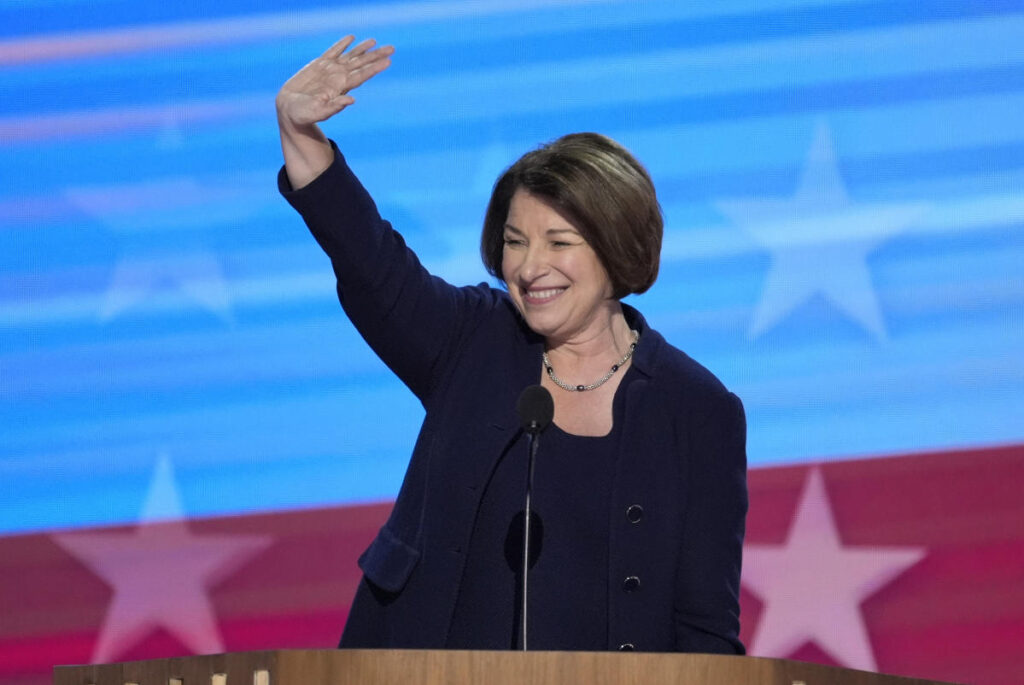In the recent election, Democratic U.S. Senator Amy Klobuchar faced off against anti-establishment Republican Royce White in a highly anticipated race for Minnesota’s Senate seat. Klobuchar, a well-established politician with a strong electoral history, was considered a frontrunner, having previously won significant victories with 58% of the vote in 2006, 65% in 2012, and 60% in 2018. By the end of September, she had raised nearly $21 million, showcasing a substantial financial advantage over her opponent. In contrast, White, a former NBA player who garnered attention for his unorthodox political views and background, managed to secure just under $449,000 for his campaign. His unexpected endorsement by the state Republican Party in May surprised many political observers, particularly after he won a plurality in the August primary, defeating a more traditional Republican candidate.
Royce White’s campaign has been marked by his self-identification as a populist and his strong support for former President Donald Trump. Despite his connection to Trump, the former president did not endorse White, and prominent figures within the Minnesota Republican Party maintained a cautious distance from him. White has connections to controversial figures such as Trump strategist Steve Bannon and conspiracy theorist Alex Jones. The controversy surrounding White was compounded by his statements and behaviors, which critics have labeled as misogynistic, homophobic, and antisemitic. His remarks during an interview with Bannon, where he controversially claimed that “women have become too mouthy,” drew significant backlash and further tarnished his image in the political arena.
Should Klobuchar win re-election, she would set a record as Minnesota’s longest-serving Democratic senator since the state began directly electing senators in 1918. As it stands, she was tied with Henrik Shipstead, who served from 1922 to 1940. Only two senators from Minnesota have reached the milestone of five terms: Republican Knute Nelson and Democrat Hubert Humphrey, who served non-consecutive terms. Klobuchar’s political journey began as the chief prosecutor in Minnesota’s largest county, and her candidacy for the Senate in 2006 marked the start of a successful career dedicated to public service and leadership.
Beyond her electoral successes, Klobuchar has held influential positions, including her role as chair of the Senate Rules Committee and her membership on the Judiciary Committee. Her reputation was cemented during her questioning of Supreme Court nominee Brett Kavanaugh in 2018, which garnered national attention. Klobuchar has consistently addressed significant issues, including those surrounding the security failures related to the January 6, 2021, insurrection, demonstrating her commitment to accountability and justice in government.
Senator Klobuchar has deep roots in Minnesota, being the daughter of Jim Klobuchar, a well-known newsman in Minneapolis who passed away in 2022, and Rose Klobuchar, a schoolteacher who died in 2010. Her family’s background—her grandfather was an iron miner—highlights her connection to the working-class ethos prevalent in Minnesota. This personal history, combined with her professional accomplishments, has resonated with voters, contributing to her popularity and support within the state.
As the election approached, it became increasingly evident that Klobuchar’s established track record, financial advantages, and significant endorsements overshadowed White’s unconventional candidacy and controversial statements. The stark disparity in campaign resources and political experience underscored the challenges facing White in his bid for the Senate seat. Ultimately, the outcome of this election would not only determine Klobuchar’s potential record-setting tenure but also reflect the broader political landscape in Minnesota as the state navigates its ever-evolving political affiliations and voter priorities.

